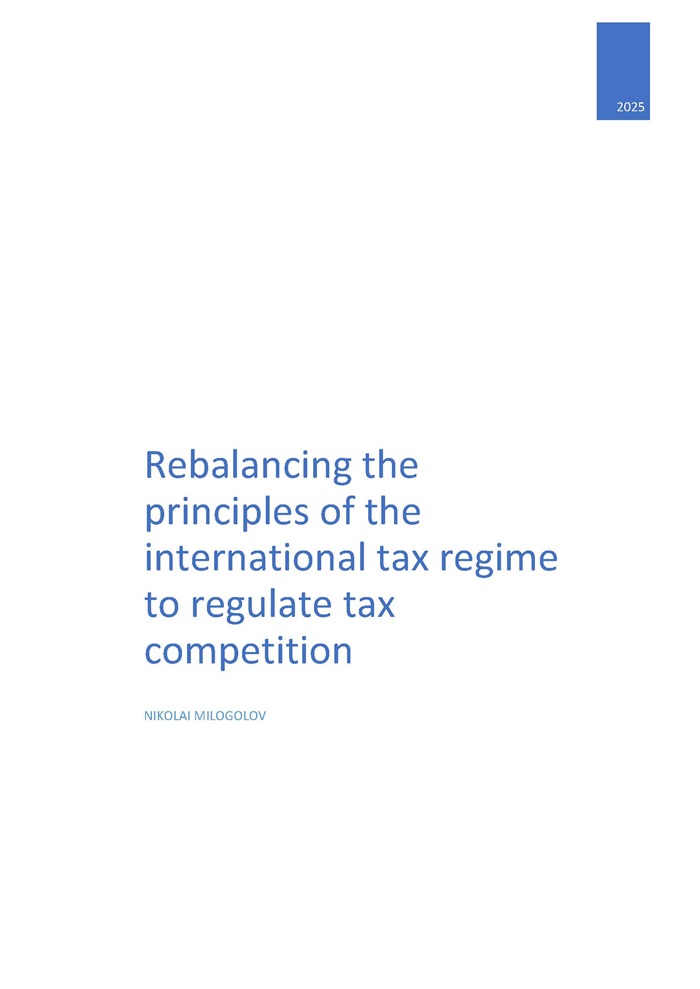
The central purpose of this research of Nikolai Milogolov is to delineate and evaluate the recent and currently ongoing (post-BEPS) shift in the principles of the international tax regime (ITR) by applying the research framework of the balanced ITR. The thesis moves in two steps which form respectively parts A and B. In part A the competing developments in the tax policies of high-tax and investment hub jurisdictions post-BEPS is explored through cross-jurisdictional comparisons and economic analysis. In part B the ITR principles are discussed in the context of the evolution of the international standards aimed at regulating the issue of tax competition in the context of the balanced ITR research framework. Referring to the balance among the four ITR principles, are identified: (1) the benefit (economic allegiance/value creation) principle, (2) the single tax (full taxation) principle, (3) the fair (non-harmful) tax competition principle and (4) the standardization (harmonization) principle. Milogolov claims that these principles and their reflection in the international tax rules can be seen as reflection of the tax policy interests of countries in international tax relations. Therefore, a well-balanced regime should not have a major technical conflict among these principles.
Key conclusions of the thesis are:
• The status quo in international tax policy dynamics may be described as the differentiated international tax environment in which investment hubs and high tax jurisdictions are exercising their competing tax policies and where the international tax regulations serve as the constraints limiting the countries’ possibilities for this.
• Due to the inherent differentiation in tax policies, the claim is that tax competition may be seen as an essential feature of the international tax environment, as countries exercise their tax sovereignty through various tax policy measures, reflecting their diverse economic interests. This will likely be stable over time changing its form in line with the emerging new modes of doing business associated with the technological progress and digitalization. One of the main arguments in favor of such a claim is the investment hubs’ capacities to adopt to any tightening of the regulations, therefore putting a competitive pressure on the other countries’ fiscal policies.
• The ongoing developments such as Global Minimum Tax are dramatically shifting the balance among these principles. This shift renders some of the cornerstone principle (i.e. benefit/economic allegiance principle) de facto ineffective as it becomes overridden by the emerging principles (i.e. primarily by the fair tax competition principle). This can raise legitimate concerns of the many countries in the desirability of the updated ITR and decrease their incentives for investing further efforts in tax cooperation. The reform is politically distorting the balance in international economic competition instead of providing the principle-based standard for the regulation of the issue.
Milogolov defended his thesis on May 23rd 2025 at Erasmus Universiteit Rotterdam. Promotors: prof. dr. Maarten de Wilde and prof. dr. Brigitte Unger.
Nikolai Sergeevich Milogolov
Rebalancing the principles of the international tax regime to regulate tax competition
One of the chapters of the dissertation was published at Wolters Kluwer’s Intertax. Further to this, Milogolov is planning to submit the book to a tax and legal publishing house.

